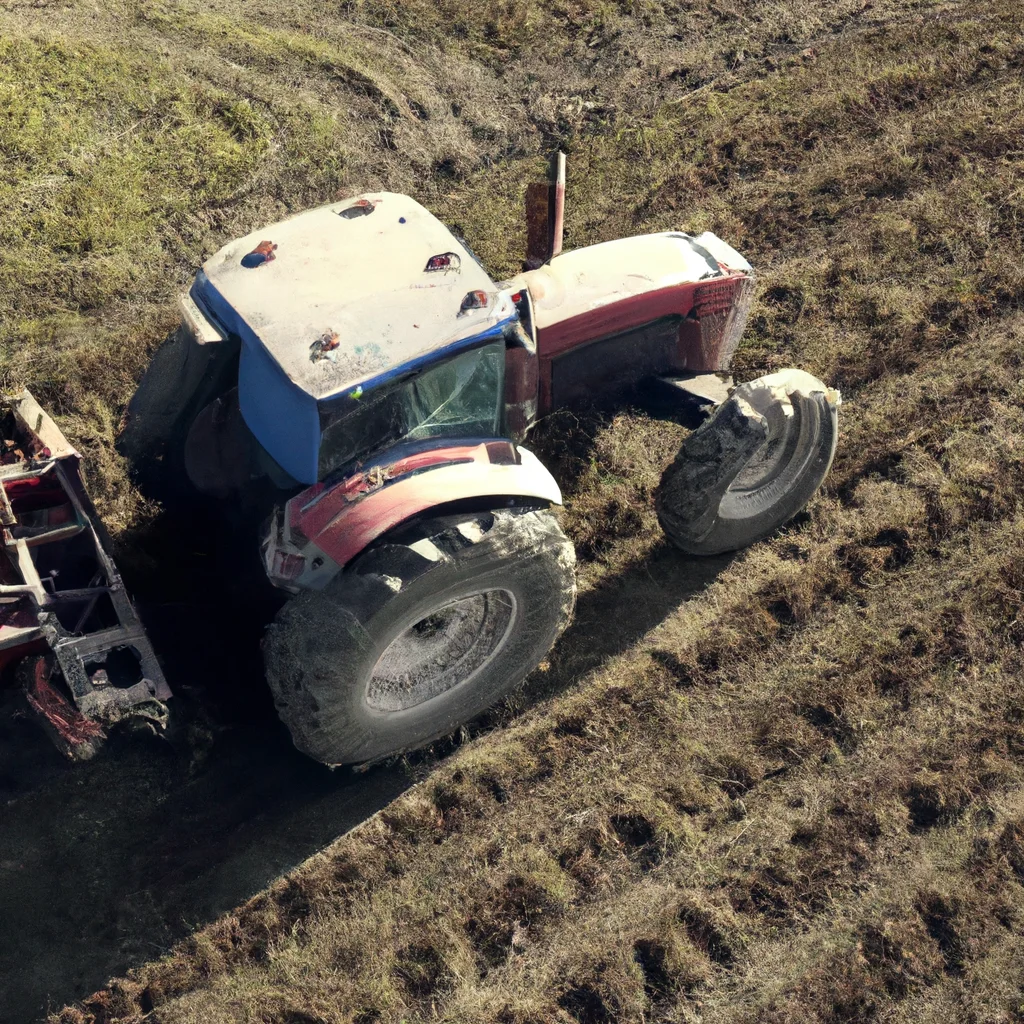How does a tractor work?


How does a tractor work?
Tractors are an essential part of any farming operation. They are versatile, powerful, and efficient machines used for a wide range of tasks, from plowing and tilling to harvesting and hauling. But how does a tractor work? In this article, we will explore the mechanics of a tractor, from its engine and parts to its operation and maintenance.
Tractor Parts and Mechanics
At the heart of every tractor is its engine, which is responsible for generating the power needed to operate the machine. Most tractors use diesel engines, which are known for their durability, fuel efficiency, and torque. The engine is connected to a transmission, which transfers power to the wheels and allows the operator to control the speed and direction of the tractor.
The wheels are another crucial component of a tractor. Most tractors have four or six wheels, with the front wheels used for steering and the rear wheels providing traction and pulling power. Many tractors also feature a hydraulic system, which is used for lifting and lowering attachments, such as plows, mowers, and loaders. This system is powered by a hydraulic pump, which is driven by the engine.
Tractor Technology
Over the years, tractor technology has advanced significantly, with many modern tractors featuring electronic controls, GPS systems, and other high-tech features. These advancements have greatly improved tractor efficiency, accuracy, and safety. For example, GPS technology can be used to precisely guide tractors during planting and harvesting, reducing waste and increasing yields.
Tractor Power
Tractors come in a range of sizes and horsepower ratings, with larger tractors typically used for heavy-duty tasks, such as plowing and harvesting, while smaller tractors are used for lighter duties, such as mowing and hauling. The amount of power a tractor generates is measured in horsepower (hp), with one horsepower equal to approximately 745 watts of power. The horsepower rating of a tractor depends on the size and type of engine, as well as the type of transmission and other factors.
Tractor Operation
Operating a tractor requires skill and attention to detail. Before starting the engine, the operator must perform a pre-operation check, inspecting the tractor for any damage or wear and ensuring that all fluids are at the proper levels. The operator must also be familiar with the controls and safety features of the tractor, including the seat belt, roll bar, and emergency shut-off switch.
During operation, the operator must be aware of the terrain and any obstacles, such as rocks or tree stumps, that could damage the tractor or its attachments. The operator must also be mindful of the speed and direction of the tractor, as well as the position of any attached equipment, to ensure that the tractor operates safely and effectively.
Tractor Maintenance
Proper maintenance is crucial for keeping a tractor running smoothly and prolonging its lifespan. This includes regular oil changes, filter replacements, and other routine maintenance tasks. It also involves inspecting the tractor for any signs of wear or damage, such as worn tires or loose bolts, and addressing these issues promptly to prevent further damage.
Conclusion
In conclusion, tractors are complex machines that rely on a range of parts and systems to operate. From the engine and transmission to the wheels and hydraulic system, every component plays a critical role in the tractor’s performance. Additionally, modern tractor technology has greatly improved tractor efficiency, accuracy, and safety. However, proper operation and maintenance are crucial for ensuring that a tractor operates safely and effectively for many years to come.
Recent Posts
How do I create an engaging and informative online quiz or assessment?
Creating an engaging and informative online quiz or assessment can be a powerful tool for… Read More
What are the most effective methods for managing and reducing work-related stress in the hospitality industry?
Work-related stress is a common issue in the hospitality industry, where employees often face long… Read More
How can I improve my assertiveness and communication skills in a leadership position?
In a leadership position, assertiveness and effective communication skills are crucial for success. Being able… Read More
What are the key elements of a successful employee recognition and rewards program?
Employee recognition and rewards programs play a crucial role in motivating and engaging employees, as… Read More
How do I effectively manage and respond to customer feedback and reviews?
Customer feedback and online reviews play a crucial role in shaping a company's reputation and… Read More
What are the best strategies for effective time management as a stay-at-home parent?
Effective time management is crucial for stay-at-home parents who juggle multiple responsibilities on a daily… Read More